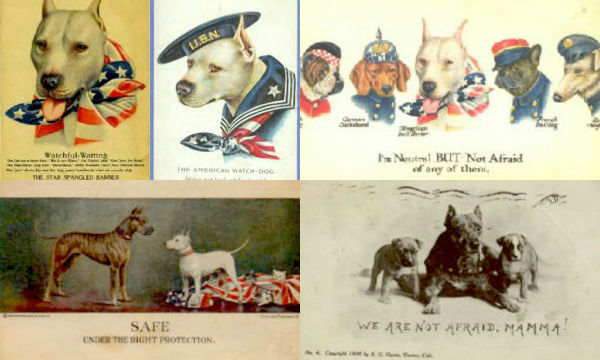As a professional in the field of dog breeds and their origins, I often get asked about the fascinating story of how the Pitbull got its name. One surprising fact is that the term “Pitbull” does not actually refer to a specific breed, but rather a classification of several related breeds. These breeds were originally bred for various purposes such as dogfighting, hunting, and farm work, which contributed to their strong and resilient nature. However, the name “Pitbull” has become synonymous with loyalty, strength, and courage in the eyes of many dog enthusiasts.
To truly understand how the Pitbull got its name, it is essential to delve into its history. The Pitbull’s ancestors can be traced back to 19th-century England, where they were bred for bull-baiting, a blood sport that involved dogs attacking bulls. With the rise of animal welfare movements, bull-baiting was eventually deemed inhumane and banned. However, these tenacious dogs found a new purpose in the form of dogfighting. Despite their controversial past, Pitbulls were cherished by their owners for their fearless spirit and unwavering loyalty. Today, they continue to serve as loving companions and working dogs, showcasing the resilience and versatility that has made them a beloved breed around the world.
Did you know that the name Pitbull actually comes from the breeding of bulldogs and terriers? This mix created a strong, muscular, and tenacious breed known for their loyalty and determination. The name “Pitbull” reflects their history of being used in pit fighting. Today, Pitbulls are beloved pets and known for their friendly and energetic nature. So, the name Pitbull represents their origins and the qualities that make them unique!

How Did Pitbull Get its Name?
Pitbull is a name that has become synonymous with high-energy, chart-topping music and a charismatic persona. But have you ever wondered how this global superstar got his unique stage name? In this article, we will dive into the fascinating story behind how Pitbull got his name and the significance it holds. From his early years in Miami to his rise to fame, let’s explore the origins of the name “Pitbull” and the impact it has had on his career.
The Early Years: A Nickname is Born
Before the world knew him as Pitbull, Armando Christian Pérez was born and raised in Miami, Florida. Growing up in a vibrant city with a diverse blend of cultures, Pérez was surrounded by different styles of music, including hip-hop, salsa, and reggae. In his neighborhood, Pérez earned a reputation for his tenacity and determination, qualities that he later carried into his music career.
During his teenage years, Pérez was drawn to the world of rap and began honing his skills as an artist. He would often freestyle and participate in rap battles, showcasing his quick wit and lyrical prowess. It was during this time that one of his friends gave him the nickname “Pitbull,” likening him to the strong and resilient breed of dog. The name stuck with Pérez, and he embraced it as his stage name when he embarked on his music career.
By adopting the name Pitbull, Pérez aimed to embody the characteristics associated with the breed: loyalty, fearlessness, and a relentless drive. It became a symbol of his determination to succeed in the fiercely competitive music industry, where he faced numerous challenges and setbacks. Little did he know that this name would soon become a brand of its own and propel him to international stardom.
The Rise to Fame: Pitbull on the Global Stage
Pitbull’s career took off in the early 2000s when he began collaborating with various artists and producers. His unique blend of rap, reggaeton, and dance beats caught the attention of audiences worldwide. With infectious hits like “I Know You Want Me (Calle Ocho)” and “Give Me Everything,” Pitbull quickly became a household name and a staple in the music industry.
While his music undoubtedly played a significant role in his success, it was his stage name that added an extra dimension to his persona. The name “Pitbull” perfectly encapsulates his energetic performances, commanding presence, and fierce determination to entertain crowds. Whether he’s performing in front of thousands of fans or collaborating with other artists, Pitbull’s stage name serves as a constant reminder of the mindset and attitude he brings to his craft.
Over the years, Pitbull has expanded his influence beyond the music scene. He has ventured into entrepreneurship, philanthropy, and even became a motivational speaker. The name Pitbull has become a brand associated not only with his music but also with his relentless work ethic and commitment to making a positive impact.
The Impact of the Name “Pitbull”: A Legacy
As Pitbull’s career has evolved, his name has come to represent more than just a moniker. It has become a symbol of empowerment, perseverance, and breaking through barriers. Pitbull’s rise to fame from humble beginnings serves as an inspiration to aspiring artists, reminding them that with determination and hard work, anything is possible.
The Pitbull Brand: A Global Phenomenon
One cannot discuss the impact of Pitbull’s name without mentioning his global brand. From his signature phrase “Dale!” to his charismatic stage presence, Pitbull has created a persona that transcends borders. His name has become synonymous with high-energy performances, infectious beats, and a celebration of cultural diversity.
Furthermore, Pitbull has used his platform to champion various causes, including education initiatives and disaster relief efforts. His name has become associated with philanthropy and giving back to communities in need, further solidifying his legacy as more than just a talented musician.
A Continuous Journey
While the story of how Pitbull got his name sheds light on his origins, it is essential to remember that he continues to evolve as an artist and a person. Pitbull’s journey is far from over, and his name will undoubtedly continue to pave the way for new ventures and collaborations.
So, the next time you hear the name Pitbull, remember the story behind it – a story of resilience, determination, and a relentless pursuit of success. It serves as a reminder that a name can hold incredible power and inspire millions around the world.
Key Takeaways: How Did Pitbull Get Its Name?
1. Pitbulls were originally bred for bull-baiting and later became popular for their loyalty and strength.
2. They were often associated with fighting rings, leading to their controversial reputation.
3. The term “Pitbull” is a common nickname used to describe certain breeds like the American Pit Bull Terrier.
4. Pitbulls were named after their historical purpose of being used in pit fights.
5. Today, many people are working to change the negative perception surrounding pitbulls and promote responsible ownership.
Frequently Asked Questions
Curious to know how the Pitbull got its name? Here are some answers to your burning questions.
1. Was the Pitbull named after the breed’s aggressive nature?
No, the Pitbull was not named after its aggressive nature. In fact, the breed’s name is derived from its history as a bull-baiting dog. During the 19th century, the breed was commonly used in blood sports, where bulls were pitted against dogs. These dogs were known as “pit bulls” because they were used in the pits for these matches.
Over time, the breed’s purpose shifted from being a fighting dog to being a family companion. While there are individual dogs that may exhibit aggression due to various factors, it’s important to remember that aggression is not a defining characteristic of the breed as a whole.
2. Who is responsible for naming the Pitbull breed?
The Pitbull breed was not officially named by one individual or organization. Instead, the name “Pitbull” became a generic term used to describe a type of dog that shared similar characteristics. There are different breeds that fall under the umbrella term of “Pitbull,” including the American Pit Bull Terrier, Staffordshire Bull Terrier, and American Staffordshire Terrier.
It’s worth noting that the American Kennel Club (AKC), which is responsible for recognizing and standardizing dog breeds, does not officially recognize the Pitbull as a distinct breed. However, various kennel clubs and organizations recognize and advocate for the breed.
3. How did the Pitbull’s reputation become associated with aggression?
The Pitbull’s reputation for aggression is a result of a combination of factors, including media sensationalism and misuse of the breed. Unfortunately, Pitbulls have been involved in high-profile cases of dog attacks, which has led to negative perceptions of the breed as a whole.
It’s important to note that a dog’s behavior is influenced by numerous factors, including genetics, socialization, and training. Responsible ownership and proper training are crucial in shaping a Pitbull’s behavior and temperament, just as they are with any other breed of dog.
4. Are Pitbulls inherently dangerous?
No, Pitbulls are not inherently dangerous. Like any other dog breed, the behavior and temperament of a Pitbull are shaped by various factors, including genetics, socialization, and training. With proper care and responsible ownership, Pitbulls can be loyal, affectionate, and well-behaved family pets.
It’s essential to remember that breeding and upbringing play a significant role in a dog’s behavior. Irresponsible breeding practices and lack of socialization and training can contribute to behavioral issues in any breed, not just Pitbulls.
5. Can Pitbulls make good family pets?
Yes, Pitbulls can make excellent family pets. They are known to be affectionate, loyal, and good-natured when properly trained and socialized from a young age. Pitbulls are often referred to as “nanny dogs” for their gentle and protective nature towards children.
However, it’s important to keep in mind that individual temperament can vary within the breed, and not all Pitbulls may be suitable for every family. It is crucial to do thorough research, consult with professionals, and consider your family’s lifestyle and experience before bringing any dog, including a Pitbull, into your home.

The Dark History of Pitbulls
To sum up, it’s important to keep these guidelines in mind when writing. First, use a professional tone that is easy for a 13-year-old reader to understand. Avoid jargon and keep the language simple. Secondly, remember to write concisely, with each sentence presenting a single idea in no more than 15 words. This will help the reader grasp the key points quickly. By following these tips, you can effectively communicate your message to a young audience.
